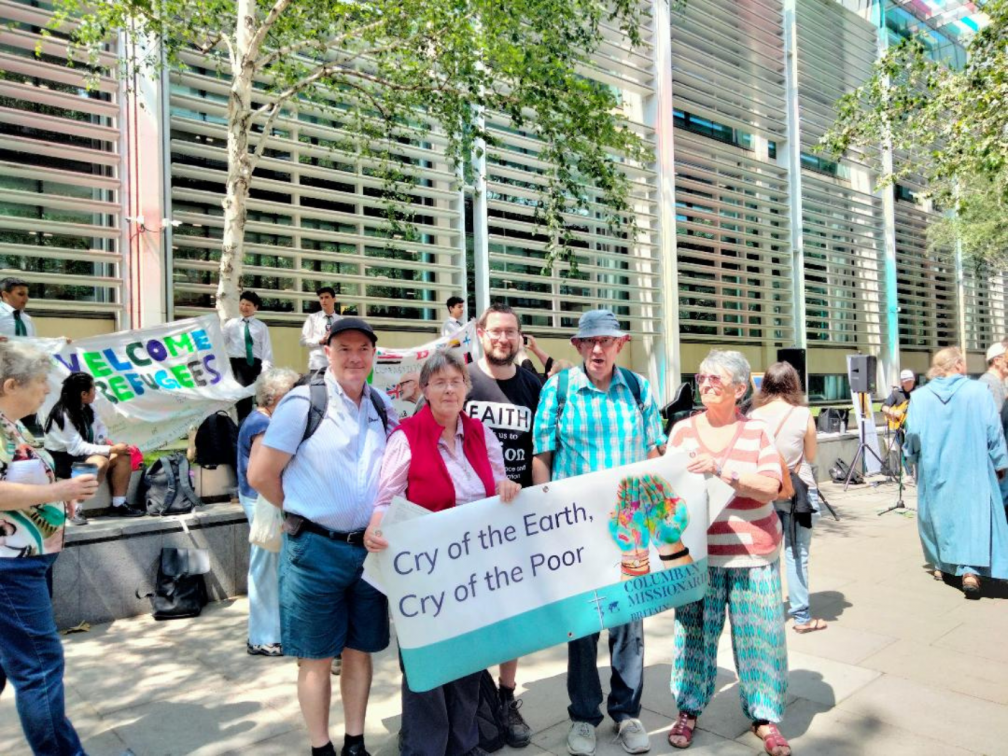
Home Secretary Suella Braverman has been challenged by Church leaders and refugee charities after she attacked international refugee agreements during a speech on “uncontrolled and illegal migration” in the US last week. She argued that the United Nations 1951 Refugee Convention must be reformed to tackle a worldwide migration crisis. It is currently the centrepiece of international refugee protection, recognising the right of persons to seek asylum from persecution in other countries. Also in her sights was the European Convention on Human Rights.
“Our response to migrants and refugees must be rooted in the innate worth of each human person which demands recognition and respect of the fact that they are fleeing poverty, conflict or persecution,” Bishop Paul McAleenan, Lead Bishop for Migrants and Refugees in England and Wales, responded. “The UN Refugee Convention is designed to protect and save lives and is essential” he added; “asylum seekers must not have the door shut on them.” He pointed out that “Principle 15 in the recent Bishops’ Conference document Love the Stranger urges the government to fulfil its obligations under international frameworks” and “these frameworks include the UN Refugee Convention.”
The Columban missionaries support this stance. “Year by year the hostile environment expands in the UK,” says Mauricio Silva, a Columban co-worker and Coordinator of Fatima House asylum shelter in Birmingham; “we are among the voices trying to sustain a tradition of compassion and hospitality,” he adds. Columbans have supported Refugee vigils at the Home Office in London and supportive street marches in Birmingham, plus being part of the ‘Together with Refugees’ Coalition.
Braverman described “uncontrolled and illegal migration” as an “existential challenge for the political and cultural institutions of the West” in her speech at the American Enterprise Institute, a think tank in Washington, DC. She said, “uncontrolled immigration, inadequate integration, and a misguided dogma of multiculturalism have proven a toxic combination for Europe over the last few decades,” and cited Leicester as an example of a place where this had contributed to “undermining the stability” of society.
The Anglican Bishop of Leicester, Martyn Snow, responded: “I profoundly disagree with the Home Secretary’s speech about asylum and multiculturalism, her characterisation of Leicester, and those seeking refuge in the UK.” He added, “I am immensely proud to be Bishop of this diverse, creative and vibrant city.”
Durham’s Anglican Bishop, Paul Butler, defended the 1951 Convention, saying that it has “served the world well”, and “it still does”. He did suggest, “the international community needs to look carefully at how it might apply in a world of significant climate change and this leading to an increase in those seeking refuge.” Yet, “the fundamentals of the Convention are sound and it is important that as a nation we play our full part in the international need for the proper protection of those in need of refuge.” Bishop Butler called for the development of more “safe and legal routes” for refugees.

